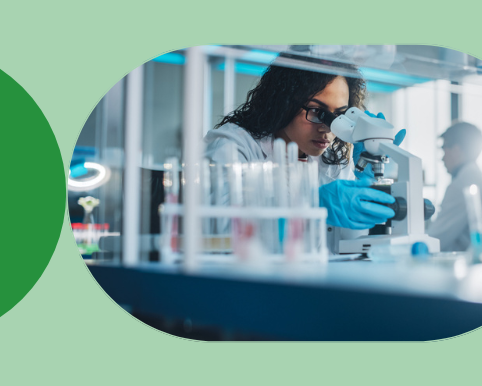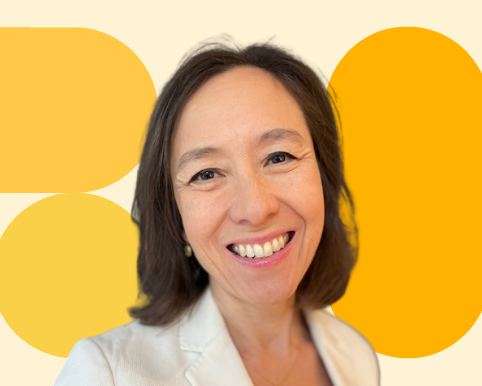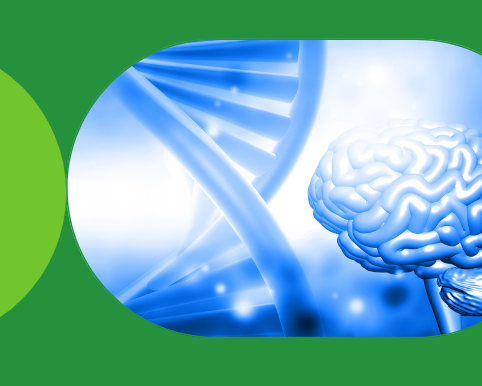Innovating genomic medicine together at Discovery Forum
By Edward Farmer on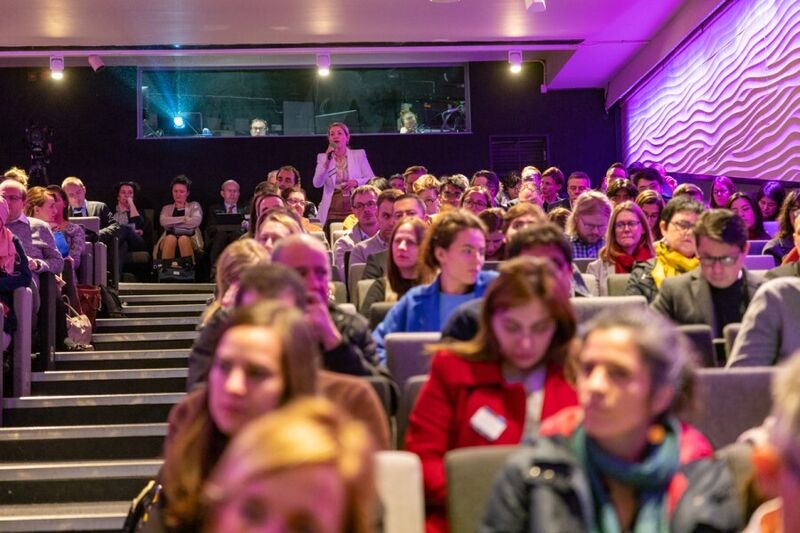
Since we hosted our eighth Discovery Forum event in November, some of the conference's key agenda items – newborn sequencing, BioNTech's alliance with the UK in cancer, and the UK's global leadership in genomics – have been at the heart of big precision medicine conversations in the global scientific community and society at large.
We hope this reflects well on the thinking behind our strategy: to aim our capabilities at some of the most promising applications in genomic medicine, particularly those in which we have unique assets and expertise and where there is the possibility to create new interventions that benefit patients.
As a brief refresher and guide to the archived sessions of the day, we've rounded up some highlights.
Strategic community: Building capabilities for bigger impact
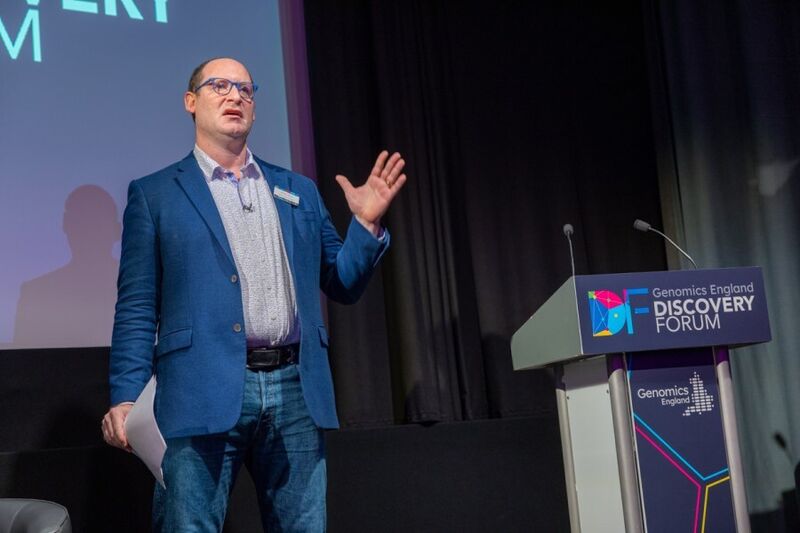
Parker Moss, chief partnerships officer, in the opening session of Discovery Forum.
Parker Moss, chief partnerships officer, opened the day and first session with an invitation to engage with Genomics England as we enter our second decade. For anyone working with us already or thinking about starting a new research effort, it's well worth a listen.
We're one leg of the genomics research ecosystem in the UK – complemented by UK Biobank in common conditions and Our Future Health as it ramps up. Parker emphasised that Genomics England provides not just a dataset but a community of expertise. In our unique position working with both pharma and biotech industries and academic researchers, we can enable valuable interactions and collaborations between the 2 groups to deliver impact for patients, participants and the NHS.
Genomics England’s partnership strategy has evolved and is hitting stride. It aims to take advantage of ongoing analyses of the 100,000 Genomes Project and new data and cohorts of unprecedented scale – through broadening cancer, newborns and diverse data initiatives and the NHS Genomic Medicine Service (GMS).
The strategy also outlines more productive ways of working, with Genomics England now focused on only on making data available to partners and providing a much more service-based approach. In this collaborative approach, we want to connect industry teams with translation-focused academic collaborators, speed the assembly of bespoke cohorts and multiomic data to solve key R&D challenges, and deploy our bioinformatics teams to get answers.
And that's just the vision. Bringing it to life are case studies from Nathan Lawless of Boehringer Ingelheim on the value of Genomics England cohorts in the context of other biobanks, James Hadfield of Astra Zeneca on MRD in cancer, and the brave and moving story of the extraordinary collaboration between Julia Vitarello and her family and Tim Yu of Boston Children's Hospital to develop a completely personalised clinical therapy for her daughter Mila's Batten's Disease.
Next up: Innovation and results through more data (and beyond it)
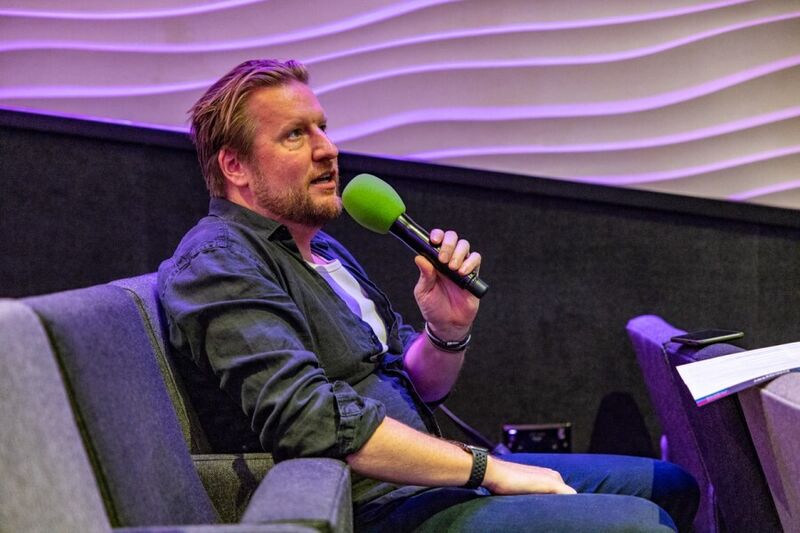
Chris Wigley, CEO of Genomics England, asking a question during one of the sessions.
For an inspiring summary of what Genomics England has in the pipeline, have a listen to Matt Brown's talk kicking off the afternoon. Our chief scientific officer, leading his first Discovery Forum since taking the reins last year, Matt laid out the structure of the next era of our research programme.
In a world of many biobanks, Matt describes Genomics England’s unique value: "Being both a clinical services provider and a research organization... enables us to do lots of things that pure biobanks are not able to do quite as well." This is the foundation for us to build on our core mission to deliver diagnoses and better treatments for rare disease and cancer – to become a holistic precision medicine organisation positioned to continue to make global contributions in bioinformatics, ethics and increasingly in common conditions as well.
While 'who' we are is crucially a community rather than a dataset, data is very much the heart of the 'what' that Matt and the day's many other speakers use to frame what Genomics England is developing. His vision, expanded by our speakers, is to make our datasets:
More comprehensive
While filling in some notable gaps in existing datasets – like ER status in our breast cancer cohort – a strategic effort is underway to integrate transcriptomics and proteomics for our cohorts alongside whole genome and phenotypic data. Longtime academic collaborators Diana Baralle of Southampton and Claudia Langenberg of QMUL present on utility of these additions, and David Seaton of GSK discusses why this is critical for target validation. And on expanding multimodality, Genomics England’s Prabs Arumugam discusses the generation and integration of digital oncology images into our cancer platform, and Helen Webb our work to explore the utility of long-read sequencing.
Bigger and more diverse
Serving as the engine of the NHS Genomic Medicine Service may soon bring 100,000 clinical rare condition and cancer whole genome sequences into our research library every year. Additionally, the Newborn Genomes Programme, as discussed by our own Alice Tuff-Lacey, and our Diverse Data Initiative, are expected to begin significant recruitment in 2023. And crucially, at the same time this will make our data better reflect the ethnic diversity of the UK, it will also for the first time bring into our research participants from the general population and so open multiple windows on common condition research.
Possible to analyse in new ways
All were grateful that Manolis Kellis took the time to trek to London to talk about how he is using single-cell sequencing and omics to map causal disease mechanisms and how to disrupt them for therapeutics. Ana Leite from Benevolent AI, and Genomics England’s Loukas Moutsianas provided partner and in-house views of the complexity and potential of developing novel bioinformatics to bring together all of these data types to inform causal target development.
Again, Discovery Forum was that wonderful periodic opportunity for us and our research community to gather and share recent achievements, and to discuss what is coming in terms of new focus areas, data and research opportunities.
Whether you attended on the day and missed some sessions, or weren't able to attend at all, we invite you to engage with the talks and continue the thinking, conversation and good work; most of the sessions were recorded and you can see and listen to them here. Please do dive back in. We think of Discovery Forum more as a user group than a conference, so your engagement is what it's all about.
